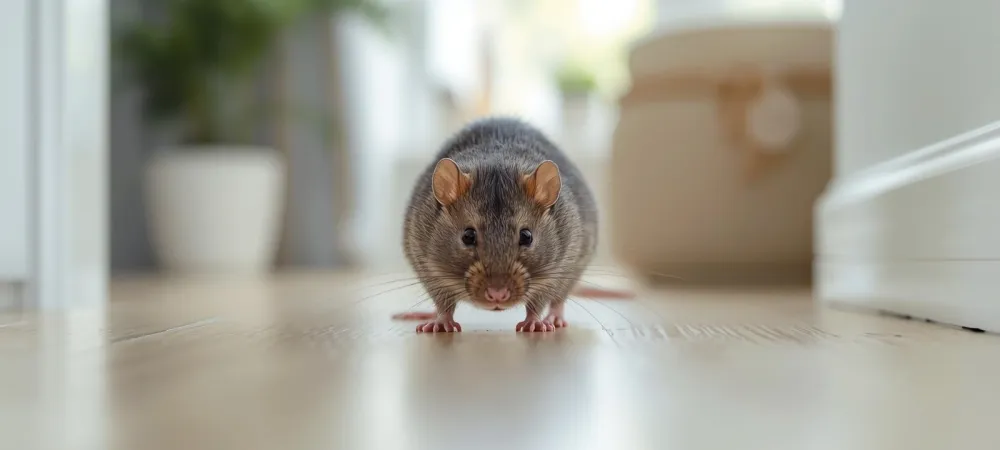
Don’t Let Rodents Overwinter in Your Oklahoma Home: How to Prevent Mouse & Rat Infestations Before Spring
As temperatures drop and Oklahoma winters settle in, rodents like mice and rats start seeking warm, sheltered spaces in homes. While many homeowners notice the occasional gnaw mark or scratching in walls, by the time these signs appear, infestations are often well underway. Overwintering rodents not only damage property but also pose health risks through droppings and contamination. Understanding why rodents invade during winter and how to prevent them is essential for keeping your home safe and comfortable. This guide provides actionable strategies that combine practical tips with professional solutions, ensuring you stay one step ahead of pests.
The Quick Answer
Rodents invade Oklahoma homes in the fall and winter seeking warmth, food, and shelter. Prevent infestations by sealing entry points, removing attractants, and scheduling a professional inspection. Early action ensures you avoid costly damage and health risks before spring.
Why Rodents Overwinter and Why It Matters
Rodents are opportunistic survivors. As outdoor temperatures drop, mice and rats are motivated to enter structures that offer heat, food, and protection. According to the University of Georgia, “Rodents often seek entry into human structures during colder months to survive the winter, where food and shelter are more accessible” (UGA IPM, 2019). In Oklahoma, mild winters can extend the period during which rodents remain active, increasing the likelihood of early spring infestations.
Overwintering rodents can cause structural damage, chew electrical wiring, and contaminate stored food with droppings and urine. Preventing them is more effective and less costly than addressing a fully established infestation.
How to Prevent Rodent Infestations Before Spring
Proactive steps now can protect your home throughout winter and into spring. Below are actionable strategies for homeowners:
- Inspect and Seal Entry Points
- Examine your home for gaps, cracks, or holes larger than ¼ inch, particularly around foundations, garage doors, windows, vents, and utility penetrations.
- Use durable materials like steel wool, caulk, or hardware cloth for effective exclusion.
- “Sealing entry points is one of the most effective methods to reduce rodent access to homes,” notes North Carolina State University’s School of Entomology (NCSU, 2020).
- Eliminate Food and Water Sources
- Store pantry items in airtight containers.
- Keep pet food indoors or sealed.
- Remove standing water and fix leaky faucets to limit attractants.
- Reduce Shelter Around Your Home
- Store firewood, lumber, and debris at least 20 feet from the house.
- Keep shrubs and vegetation trimmed away from walls.
- Declutter garages, attics, and sheds to minimize hiding spots.
- Monitor for Signs of Activity
- Look for droppings, gnaw marks, shredded insulation, and grease marks along baseboards.
- Listen for nocturnal scratching, squeaking, or scurrying sounds in walls or attics.
- Schedule Professional Inspection and Exclusion
- Rodent colonies can reproduce quickly and may evade DIY traps.
- A trained professional can identify hidden entry points, set strategic exclusion measures, and provide monitoring solutions.
- Early intervention ensures infestations are stopped before spring, when reproduction rates surge.
Comparing Methods for Rodent Prevention
There are multiple approaches to rodent control, each with its advantages and limitations:
- DIY Traps and Baits:
- Pros: Inexpensive, immediate results for small problems.
- Cons: Often only address symptoms, not entry points; can be hazardous to pets or children.
- Home Sealing & Sanitation:
- Pros: Prevents rodents from entering; long-term solution.
- Cons: Requires thorough inspection and ongoing maintenance; small gaps may be missed.
- Professional Exclusion & Inspection:
- Pros: Comprehensive, addresses both prevention and hidden infestations; expertise ensures durable results.
- Cons: Higher upfront cost than DIY methods, but more effective in the long term.
Combining home sealing, sanitation, and professional services provides the strongest defense, especially in Oklahoma’s winter months.
Prevention Tips at a Glance
- Seal all gaps larger than ¼ inch around the home.
- Store food in sealed containers; limit accessible water sources.
- Keep firewood and debris away from building structures.
- Trim vegetation away from walls; maintain a tidy garage and attic.
- Schedule a professional rodent inspection before spring.
When to Call Professionals
Homeowners should contact a pest control expert immediately if they notice:
- Multiple droppings in hidden areas (attics, pantries, basements).
- Chewed electrical wires, insulation, or structural materials.
- Persistent scratching or squeaking at night.
- Rapidly multiplying rodent populations despite DIY measures.
Dandi Guaranty offers expert Rodent Inspection & Exclusion Services tailored to Oklahoma homes. Early professional intervention ensures lasting protection and peace of mind.
Protect Your Home From Rodents Before It's Too Late
Winter is the critical period to prevent rodents from settling in your home. By combining vigilant inspections, smart exclusion strategies, and professional support, you can stop infestations before they escalate. Don’t wait until spring — schedule a Dandi Guaranty rodent inspection today and protect your home from the seasonal surge of mice and rats.
Sources:
- University of Georgia. “Cold-Weather Critters Getting Indoors?” UGA IPM, 23 Dec. 2019, https://ipm.uga.edu/2019/12/23/cold-weather-critters-getting-indoors/.
- North Carolina State University. “Rodent Proofing for Winter.” School of Entomology, 2020, https://schoolipm.ncsu.edu/rodent-proofing-for-winter/.
- Centers for Disease Control and Prevention. “Rodent Control.” CDC, 12 July 2022, https://www.cdc.gov/rodents/index.html.
